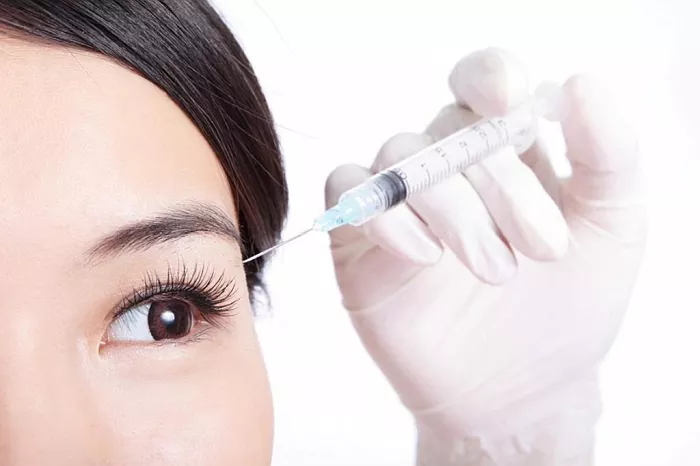Mold allergies are a common issue for many individuals, particularly during the humid months when mold spores are more prevalent in the environment. Mold can grow in various places around your home, including basements, bathrooms, and kitchens, and it thrives in warm, damp, and dark conditions. For those who are allergic to mold, exposure can lead to a range of symptoms such as sneezing, a runny nose, coughing, wheezing, and itchy eyes. In more severe cases, mold allergies can trigger asthma attacks and lead to sinus infections or other respiratory issues.
While conventional treatments, such as antihistamines, nasal sprays, and decongestants, can be effective in managing mold allergy symptoms, many individuals prefer to explore natural remedies to reduce their reliance on medication. Fortunately, several natural treatments may help alleviate mold allergy symptoms and support the immune system in fighting off the allergens. This article explores various natural methods that can help treat mold allergy symptoms, including dietary changes, lifestyle adjustments, herbal remedies, and other holistic approaches.
Understanding Mold Allergy
Before diving into the natural treatment options, it is important to understand what mold allergy is and how it affects the body. Mold is a type of fungus that grows in damp, warm environments. When mold spores become airborne, they can be inhaled, leading to allergic reactions in individuals who are sensitive to them. Mold spores are microscopic, which means they can easily enter the air and travel long distances. Common types of mold that trigger allergies include Alternaria, Cladosporium, Aspergillus, and Penicillium.
When a person with a mold allergy is exposed to these spores, their immune system reacts by producing antibodies, which can lead to the release of histamines. Histamines are chemicals that cause inflammation, leading to the typical allergy symptoms such as sneezing, coughing, and a runny nose. In some cases, mold exposure can also worsen asthma symptoms and lead to more severe respiratory problems.
Identifying Mold Allergy Symptoms
Symptoms of mold allergies can vary from person to person, and they can range from mild to severe. The most common symptoms include:
- Sneezing and coughing
- Nasal congestion or runny nose
- Itchy or watery eyes
- Throat irritation or a scratchy throat
- Post-nasal drip
- Wheezing or difficulty breathing, especially in individuals with asthma
In some cases, exposure to mold can cause more serious reactions, such as sinus infections or asthma exacerbations. If you experience severe symptoms or if your symptoms do not improve with natural treatments, it is important to consult with a healthcare professional for further evaluation and management.
Natural Remedies for Mold Allergy Symptoms
There are several natural treatments that can help alleviate the symptoms of mold allergies. These remedies can be used in conjunction with lifestyle changes and environmental modifications to reduce mold exposure and boost the body’s natural ability to fight allergens.
1. Keep Your Home Dry and Mold-Free
The first step in managing mold allergies is to reduce your exposure to mold. Mold thrives in damp, humid environments, so it is important to keep your living space dry and well-ventilated. Regularly check areas of your home that are prone to mold growth, such as bathrooms, basements, and kitchens, and take action to eliminate excess moisture. Consider using dehumidifiers in areas with high humidity and ensuring that your home is properly ventilated to prevent mold growth.
In addition to improving ventilation and controlling humidity, you should also clean any visible mold in your home. Use natural cleaning products, such as vinegar or hydrogen peroxide, to remove mold from surfaces without exposing yourself to harsh chemicals. Regularly cleaning your home can help reduce the amount of mold spores in the air and alleviate allergy symptoms.
2. Herbal Remedies for Mold Allergy Symptoms
Certain herbs and plants have natural properties that can help soothe allergy symptoms and support the immune system. These herbs can be consumed as teas, taken as supplements, or used in essential oil form. Here are some of the most effective herbs for mold allergy relief:
Nettle: Nettle is known for its natural antihistamine properties, which can help reduce inflammation and alleviate common allergy symptoms such as sneezing and a runny nose. Nettle is often used in herbal remedies for hay fever and mold allergies. It can be taken as a tea or in capsule form.
Butterbur: Butterbur is a plant that has been used for centuries to treat allergic conditions. Research has shown that butterbur can help reduce symptoms of mold allergies, including sneezing, congestion, and itchy eyes. Butterbur is available as a supplement or in tea form.
Echinacea: Echinacea is an herb known for its immune-boosting properties. It helps stimulate the body’s natural defense mechanisms and may reduce inflammation caused by mold allergies. Echinacea is commonly taken as a tea, capsule, or tincture.
Quercetin: Quercetin is a flavonoid that acts as a natural antihistamine and anti-inflammatory agent. It can help reduce the release of histamines and alleviate allergy symptoms. Quercetin is found in foods such as apples, onions, and citrus fruits, but it can also be taken as a supplement.
Peppermint: Peppermint has natural decongestant properties, making it effective for relieving nasal congestion caused by mold allergies. It can be used in the form of essential oils or consumed as a tea.
Ginger: Ginger is known for its anti-inflammatory properties and can help reduce nasal congestion and soothe irritated airways. Drinking ginger tea or consuming ginger supplements can provide relief from mold allergy symptoms.
3. Essential Oils for Mold Allergy Relief
Essential oils are highly concentrated plant extracts that can be used for a variety of therapeutic purposes. Several essential oils have natural properties that can help alleviate mold allergy symptoms by reducing inflammation, clearing congestion, and supporting the immune system. Some of the most effective essential oils for mold allergies include:
Eucalyptus oil: Eucalyptus oil is a powerful decongestant that can help open up the airways and alleviate nasal congestion. It also has antimicrobial properties that can help kill mold spores in the air. Diffusing eucalyptus oil in your home or inhaling it through steam can provide relief from allergy symptoms.
Lavender oil: Lavender oil is known for its calming and anti-inflammatory properties. It can help reduce the symptoms of mold allergies, including sneezing and itching. Lavender oil can be diffused in your home or applied topically (diluted with a carrier oil) to relieve symptoms.
Tea tree oil: Tea tree oil is a natural antifungal agent that can help kill mold spores and reduce mold exposure. Diffusing tea tree oil or using it in a spray bottle to clean surfaces can help reduce the amount of mold in your home and alleviate allergy symptoms.
Peppermint oil: Peppermint oil has a cooling effect that can help soothe irritated nasal passages and clear congestion. It can be inhaled through steam or diffused in your home to reduce allergy symptoms.
To use essential oils, you can diffuse them in your home, add them to a steam inhalation, or apply them topically (with a carrier oil) to relieve allergy symptoms.
4. Dietary Changes to Support Allergy Relief
Certain foods can help boost your immune system and reduce inflammation caused by mold allergies. A diet rich in antioxidants, vitamins, and minerals can support your body’s ability to fight allergens. Here are some dietary changes that may help alleviate mold allergy symptoms:
Increase intake of anti-inflammatory foods: Foods that are rich in omega-3 fatty acids, such as fatty fish (salmon, sardines, and mackerel), flaxseeds, and walnuts, can help reduce inflammation caused by mold allergies.
Consume foods rich in vitamin C: Vitamin C is a natural antihistamine and can help reduce the severity of allergic reactions. Citrus fruits, strawberries, bell peppers, and broccoli are excellent sources of vitamin C.
Eat foods rich in quercetin: As mentioned earlier, quercetin is a natural antihistamine. Foods such as apples, onions, citrus fruits, and leafy greens contain quercetin and can help alleviate allergy symptoms.
Support gut health: A healthy gut can play a key role in supporting the immune system. Probiotic-rich foods, such as yogurt, kefir, and fermented vegetables, can help promote gut health and may reduce allergic reactions.
Avoid foods that can worsen inflammation: Processed foods, refined sugars, and trans fats can increase inflammation in the body and worsen allergy symptoms. Reducing your intake of these foods can help reduce the severity of mold allergy symptoms.
5. Lifestyle Modifications for Managing Mold Allergies
In addition to natural treatments, there are several lifestyle modifications you can make to help manage mold allergy symptoms:
Use air purifiers: Air purifiers with HEPA filters can help remove mold spores from the air in your home. Using an air purifier in your bedroom and other areas where you spend a lot of time can help reduce mold exposure.
Regularly clean your home: Regular cleaning can help reduce mold buildup in your home. Use natural cleaning products to avoid exposing yourself to harsh chemicals, and focus on high-moisture areas where mold is most likely to grow.
Take showers after being outdoors: If you have been outside during peak mold spore seasons, take a shower as soon as possible to remove any spores from your skin and hair.
Stay hydrated: Drinking plenty of water can help thin mucus and support your body’s natural detoxification processes. Staying hydrated is especially important when dealing with allergies, as it can help keep your airways clear.
Conclusion
Mold allergies can cause significant discomfort, but there are many natural remedies and lifestyle changes that can help alleviate symptoms and reduce exposure to mold. By incorporating herbal remedies, essential oils, dietary changes, and lifestyle modifications, you can support your immune system and improve your quality of life during allergy season. However, if your symptoms persist or worsen, it is important to seek advice from a healthcare professional to ensure that you are receiving the appropriate treatment and care for your mold allergy.
Related Topics































